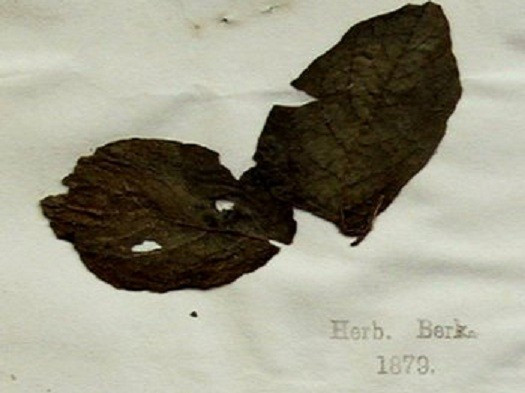Mexico Blamed as Irish Potato Famine Bacteria Exposed for First Time

Scientists have discovered the bacteria which triggered the devastating Irish potato famine nearly 150 years ago.
Researchers at the Sainsburys Laboratory in Norwich isolated the pathogen which caused the deaths of around a million people from starvation.
They said it is "new to science" and probably poses no risk today although experts were not certain.
Herb-1, the bacteria, was believed to have originated in Mexico and is the ancestor of strain of the Phytophthora Infestans micro-organism, which causes potato crops to fail today.
Teams from the Norwich lab discovered the pathogen during tests on samples at Kew Botanical Gardens in Kent from the Irish famine. They extracted the DNA from 11 samples of potato leaves.
Prof Sophien Kamoun said: "The strain was different from all the modern strains that we analysed - most likely it is new to science. We can't be sure but most likely it's gone extinct."
Hernan Burbano from the Max Planck Institute for Developmental Biology said: "We have finally discovered the identity of the exact strain that caused all this havoc.
"Both strains seem to have separated from each other only years before the first major outbreak in Europe."

Herb-1's devastating impact saw around one person in eight in Ireland starve to death when potato crops failed between 1846 and 1851, making it more deadly than almost all subsequent famines around the world.
As well as causing swathes of death from hunger, the famine also sparked mass emigration, particulary to America. Modern population levels in both Northern Ireland and the Irish Republic have yet to return to pre-famine levels.
The demise of Herb-1 after it ravaged potato crops in Ireland may have been caused by the development of new agricultural methods.
Kentaro Yoshida said: "Herbaria represent a rich and untapped source from which we can learn a tremendous amount about the historical distribution of plants and their pests - and also about the history of the people who grew these plants.
"Perhaps this strain became extinct when the first resistant potato varieties were bred at the beginning of the 20<sup>th century.
"What is certain is that these findings will greatly help us to understand the dynamics of emerging pathogens. This type of work paves the way for the discovery of many more treasures of knowledge hidden in herbaria."
© Copyright IBTimes 2025. All rights reserved.






















